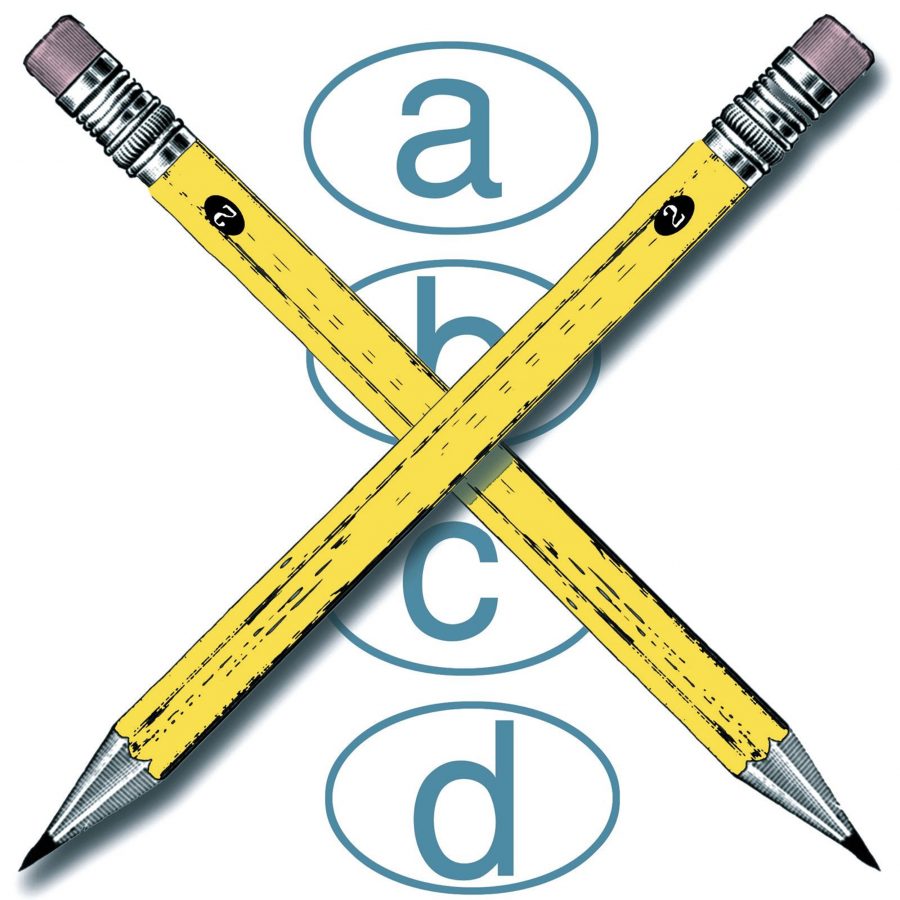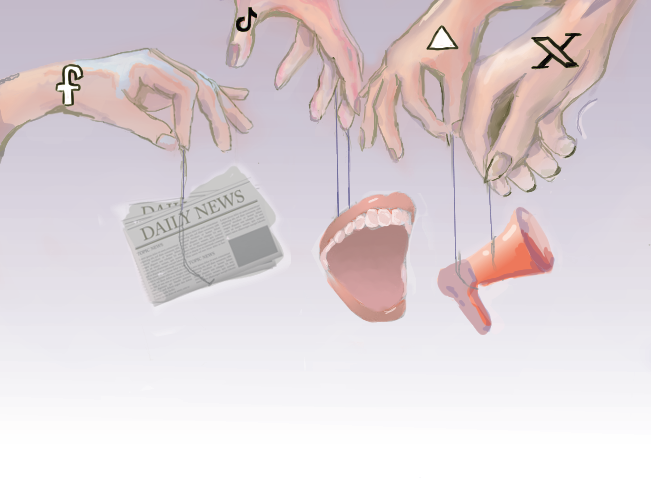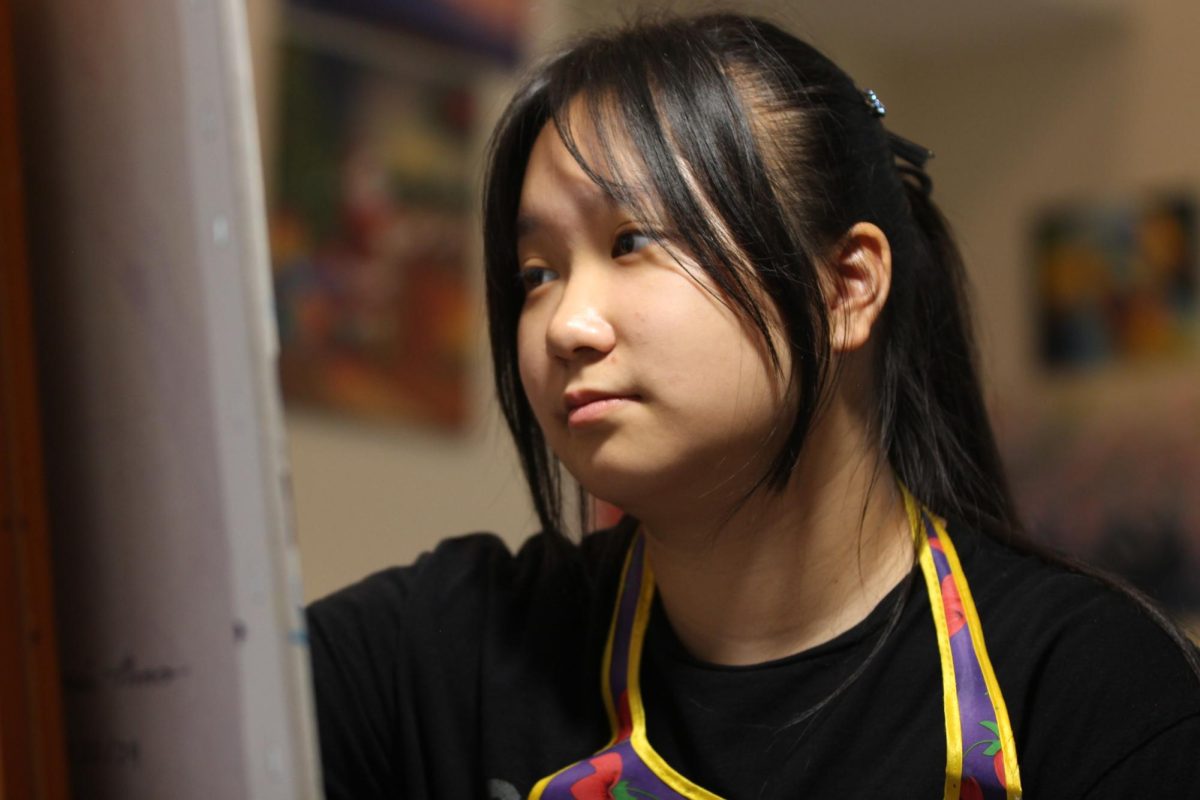In a world plagued by threats, racial divides and questionable politics, many find themselves wondering what has happened to the integrity of society and where it went wrong. It is said that the world is a classroom, and on micro-level, today’s classrooms reflect this global decline in integrity in the form of academic cheating.
Pew Research Center reports that cheating has dramatically increased over the past few decades, with 89 percent of people who witness cheating accrediting it to the internet. This information is no shock to Marjory Stoneman Douglas High School teachers and students, who combat this issue on a daily basis.
“After doing this for 30 years, I still believe in young people and like to believe in the very best of young people,” AP English Language and Composition teacher Laurie Edgar said. “I am concerned when I feel like integrity is being compromised just at the expense of being first in the class, getting ahead [and] being number one.”
A sense of competitiveness has swept through schools across the nation, as students take any means necessary to claw their way up to the top of their class — all with the premonition that this is the key to a successful life.
Bestselling author Alexandra Robbins demonstrates this trend in her book, The Overachievers, for which she conducted a case study on nine students and their experiences in this competitive culture.
“It’s partly the media, partly society’s emphasis on prestige. It’s a narrow definition of success based on scores and prestige and financial gain,” Robbins said in an interview with Failure magazine. “School is not about a love of learning anymore. It’s now a competitive sport.”
It is of mutual agreement between students and teachers that cheating is wrong, for it gives certain individuals an unfair advantage. Nonetheless, the desperation of this generation overpowers their most simplest sense of moral judgement, driving them with the false promise of success.
“I think it’s the stress, the need to get into college — it’s not even a desire anymore. You have to go to college, and you have to go to the college,” junior Carson Abt said. “It feels like the only way to get there is by cheating and having a great GPA.”
In the end, students of all standings are impacted — no matter how much emphasis they place on school.
“Overachiever culture affects the top level of students in that it pushes them more than they should be pushed. It affects lower level students in that schools are pressured to favor the top students at the expense of the lesser students,” Robbins said. “There is no middle ground or ‘average’ any more. So, a lot of kids slip through the cracks that might not have slipped through the cracks in previous decades.”
The Broward County Code of Conduct identifies cheating as punishable by parent contact and eventually in-school suspension after repeated offenses. Despite the continuous warnings against academic falsity, students can’t help but notice their peers benefiting from the wrong.
“It makes me kind of frustrated that kids can cheat and get away with it. Teachers always tell us that it’ll pay off in the long run, but I don’t have any evidence of that now,” Abt said. “All I can see now is kids who cheat getting higher scores than me, and all I can think about is how that’s going to look in terms of GPA.”
Yet, Edgar and Robbins, who are able to identify the stress that instigates adolescents, introduce the predicament authorities find themselves in: how can they actually stop cheating?
“I’ve seen teachers find kids cheating and just give them detention. My parents used to tell me that when kids use to cheat, they would get expelled from their school,” sophomore Serinah John said.
Perhaps enforcing stricter rules against cheating could be a solution, but there is another side to be considered.
“It used to be that if you copied someone’s homework, that could be a problem,” Edgar said. “Now we have found over, and over, and over again that when students are caught cheating, there’s pushback from parents, and teachers are expected to prove that is was cheating.”
When teachers attempt to penalize cheating only to be continuously overturned, there is little incentive to pursue the matter further. Condense all these components of cheating, and students and educators alike are left with a general dissatisfaction with the education system.
“I have no choice at this point but to remain hopeful… that we reach a place in our society… [where] we don’t accept a lack on integrity as okay and dismiss it as a means to an end,” Edgar said. “Somehow in the school systems, we have to provide a structure or system where students don’t feel such pressure that they have to cheat.”
Both educators and students find themselves at a crossroad where neither party can be held fully accountable for the cheating problem as a whole. Until students are able to find pride and value in their work, the education system will remain flawed.








![National Honor Society Sponsor Lauren Saccomanno watches guest speaker Albert Price speak to NHS members. National Honor Society held their monthly meeting with Price on Monday, Nov. 4. "[Volunteering] varies on the years and the month, but we have started a couple new things; one of our officers Grace started a soccer program," Saccomanno said. "We have been able to continue older programs, too, like tutoring at Riverglades. NHS's goal is to have as many service projects as possible."](https://eagleeye.news/wp-content/uploads/2024/11/xNOeKNVwu7aErpVyJHrHogagZUUcLLosjtbIat94-1200x900.jpg)

![Ice Ice Baby. Skating to "Waltz" and "Romance" during her long program, figure skater Ava Zubik competes at the Cranberry Open in Massachusetts on Aug. 12, 2022. She scored a total of 86.90 on her short and free skate program, earning fifth place overall. "I try to make it [competing] as fun and enjoyable as I can because it's my senior year, and so I want to really enjoy competitive figure skating while it lasts," Zubik said.](https://eagleeye.news/wp-content/uploads/2024/11/skater1-799x1200.jpg)
